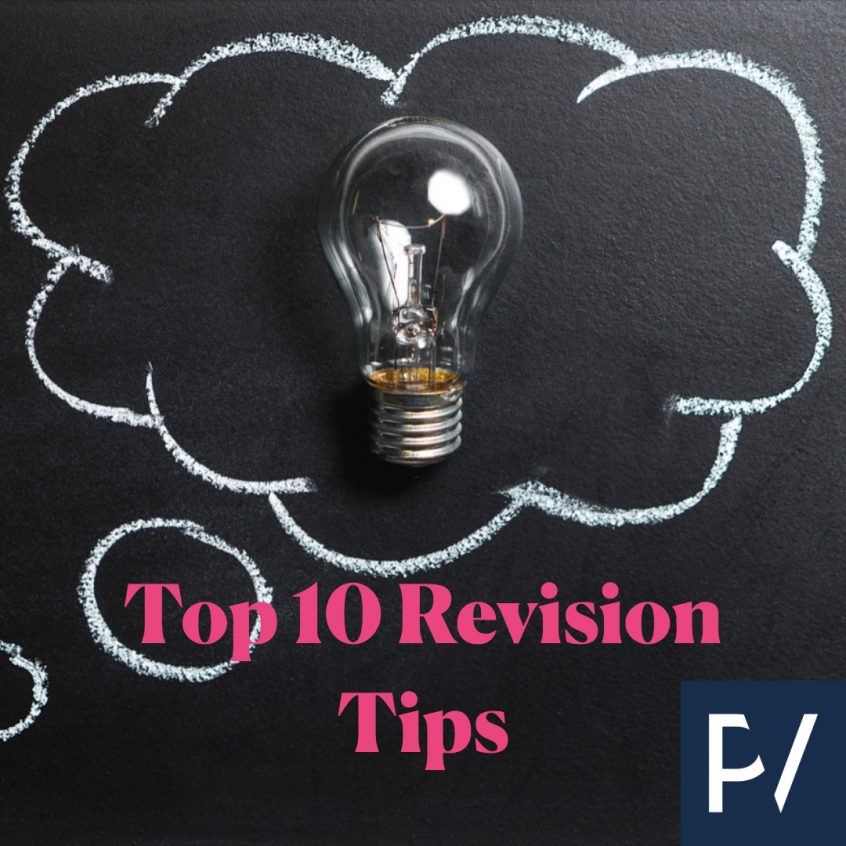Westbourne School’s GCSE Top 10 Tips

Our friends at Westbourne School have compiled a list of 10 top tips to help those preparing for the GCSE exams in the summer period to be on top form. Achieving the top spot for the best IB (International Baccalaureate) 6th Form and achieving Excellent grades in school inspections, it’s clear the school prepares its pupils well for sixth form and further education.
Here are their tips for GCSE success this spring and summer.
There is no ‘one size fits all’ guide to revision and hopefully, those in Year 11 will already have found a revision method that suits.
That said the quantity of work that has to be covered in secondary schools for the summer exam period can seem extremely daunting so, hopefully in this guide, you can find some general tips which may help you survive the coming months….good luck!

Where to begin? Timetabling is incredibly helpful as it helps you organise your time, gives you focus and puts you in control, hopefully, avoided some stress – breaking it down into subjects and then topics also gives you an overview of just what you need to work on.
Mr Pocknell’s English Literature tip:
“Consider a text from the point of view of one of the characters as this can help you look at a text with fresh eyes and may even reveal new themes. Draw an outline of this character then use different coloured pens to write quotations by different characters around it, like a spider-diagram.”
and for English language:
“Use flashcards for terminology then use the cards to find examples of the terminology in the anthology – it is also important to get in the habit of reading non-fiction texts critically – noticing when devices are being used and to what purpose.”
Structure your work so you don’t have to waste time looking for what to study or risk neglecting other areas.
A timetable can create a platform whereby you can see, day by day, the subject you should be studying, the topic, and any other elements such as breaks or social activities. It can also be used to show when deadlines are coming up, like exams, so they don’t creep up on you.
o Firstly fill in your exams, so you understand the deadline.
o Complete any commitments in the timetable, things that you can’t avoid (i.e: family events)
o Fill in your subjects
o Time the sessions to suit your body clock
o Mix the subjects you find hard in between the subjects you enjoy
o Divide blocks of revision into 35-45 minutes in one sitting
o Test the effectiveness of your learning with past papers, revision guides, BBC Bitesize

Rest. Having a good night sleep is an essential start to your revision days.
Being well rested will, not only help you think more clearly but, help to keep your work more consistent throughout the day.
Get comfortable. Very often this process is overlooked. There’s nothing worse than a small desk, uncomfortable chairs and the wrong choice of clothes when preparing for your exams. Make sure your back is well supported, the desk big enough for a paper and books and that you have your most relaxing outfit on.
By doing so, it will allow you to have complete focus on the task at hand and not the distractions.
Top Tip: Stay hydrated. If you are dehydrated it has a negative effect on your concentration and memory.
As you can see from the sample study timetable above, breaks are critical when the stresses and strains of GCSE’s are in full flow. However, this does not mean spending most of your day in bed or getting lost in hours of Youtube!
After each of the core study periods a 10-15 minute break, where you grab a snack or take some fresh air is extremely beneficial to reset your focus, for those in Penarth, a walk down to the Pier can certainly reset the mental focus. An hour for lunch is also great to make sure you come into the afternoon full of motivation and a full stomach.
Top Tip: Studying beyond dinner time can coincide with you winding down for the evening and yourself becoming more fatigued. However, everyone is different, so, if you’re a night owl, this may not be the case; just as long it isn’t to the crazy hours of the morning.
Seeing friends, going for a run or chatting over FaceTime are all normal daily occurrences – just because it is exam season does not mean these things have to stop….just timetable them!
Exercise, in moderation, can help to boost your energy levels, increase memory retention, relieve stress and increase focus. Quite literally, it will ‘jog’ your memory and release endorphins to create a happier mood.
Socialise. Seeing friends is another way to stay positive and keep happiness levels rising. However, don’t take this as an opportunity to neglect work you might have to do that afternoon. Your pals can be a great way for you to vent any problems you might have but also allows you to share ideas which can only be a good thing.
Top Tip: Study groups can be a great way for you and your peers to solve an issue or motivate you to tackle that one tough subject which keeps you awake at night.
Coloured cue cards are an inexpensive yet highly effective tool when it comes to revision organisation.
You can use these cards for many different purposes. For example, you could simply write a question on the front and the answer on the back and ask your friends and family to test you.
Another way to use them is to write quotations, for example for GCSE English Literature, or GCSE History, and surround yourself with them in your room.
Finally, the brain works in mysterious ways. By designating certain subjects and topics to different colours your brain will subconsciously associate the colour with the info you’ve written on them. Clever right? This will all come to you in the exam room – so don’t panic.
Top Tip: Don’t ram cue cards full of information. Write key information such as definitions or simple diagrams/formulas
We are all wired differently and this means we all learn differently. One person may enjoy listening to podcasts about their subjects whereas another may enjoy the visual representation of a video. From kinaesthetic to interpersonal learning, to verbal and visual, find what suits you and roll with it. Top Tip: Try and intertwine all the different styles which work for you – don’t rely on just one.
The thought of doing an exam in the comfort of your own home, and not examination room, can make even the toughest of us squirm – but they really are amazing practice.
Past papers can help you become familiar with the layout of an exam, what sort of questions they are asking, and getting your timings down all ready for the big day.
Furthermore, through the mark scheme, you can review your answers and see what you got right and realise why you got something wrong. You have to be regimented – make it seem like you are actually doing it for real. No google, no stopping the clock.
Top Tip: Don’t get the exam board wrong. Make sure you consult your teacher as to where to find the papers and what board to use. Not every school uses the same one.
These are not the type of maps which you’d see in Pirates of the Caribbean, but, mind maps are very useful indeed for obtaining the treasure of knowledge.
By writing a theme or subject in the centre of a piece of paper and the branching out different areas, just like the coloured cue cards, the brain will follow the path of information you’ve built to get you to your final answer.
For example, you could start with Biology – Photosynthesis – Green Leaves, Chlorophyll.
Again, when you come to sit your exam, it will subliminally call on you without you realising – so, well-worth trying.
Nerves and anxiety are all situational reactions to things like exams. Take deep breaths and know that you’ve worked very hard to get to this point – so really believe in that.
If you have consulted your revision timetable, you would know exactly which exam you have and what stationery is required. Those past papers should give you an insight into potential content and question technique.
Read each question at least three or 4 times properly and be sure to look out for specific wording – sometimes examiners like to catch you out.
Don’t rush – work at a consistent pace making sure you read over what you’ve written and your workings are correct. If you do run out of time, don’t panic.
Use that experience to help gauge your timings for the next exam. If one of them doesn’t go to plan then, once you leave the room, try and put it to the back of your mind and look ahead – the world won’t have ended and you can always do better.
- Settle down and lay out your equipment
- Read the paper carefully and check the instructions thoroughly
- Do not skim read the questions, you will miss something
- Underline the key words
- Identify the marks available, they are the clue to how much information you need to provide
- Make brief notes if necessary
- Explain your answer clearly and keep it relevant to the question
- Double check your answers, particularly for GCSE maths
- Be careful with your time management, don’t spend too long on low mark questions at the risk of running out of time for the higher marked questions.
- Check every side of the paper….don’t forget the back page, just incase!
For more information on Westbourne school and open days, visit their website:Â https://www.westbourneschool.com/
Good luck!




